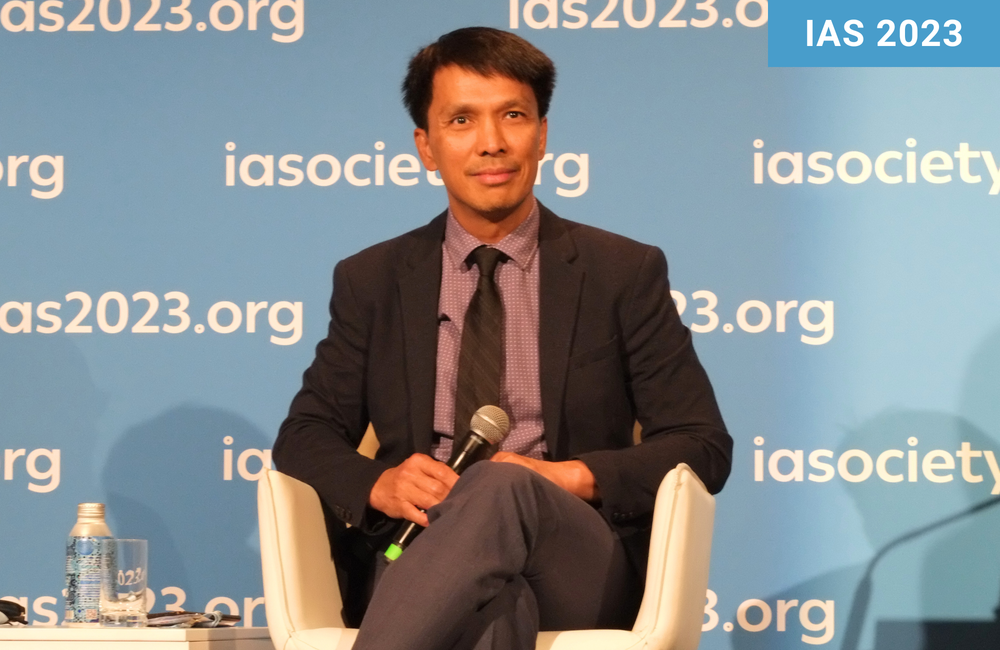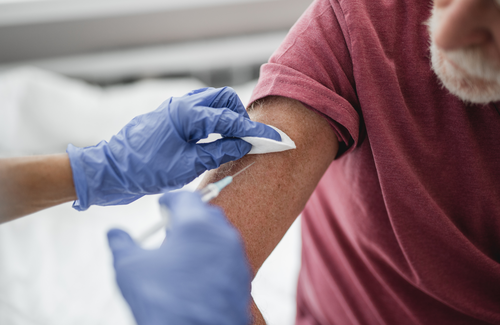
COVID-19 vaccine effectiveness appears to be lower in people with HIV who inject drugs, according to a study carried out in the Canadian province of British Columbia. The findings were presented on Monday at the 12th International AIDS Society Conference on HIV Science (IAS 2023) in Brisbane, Australia.
The University of British Columbia study found that people with HIV with a history of injecting drug use had a higher risk of testing positive for SARS-CoV-2 after vaccination and did so sooner than other vaccinated people with HIV or people without HIV. The study findings suggest that SARS-CoV-2 vaccination is less effective in preventing infection in people with HIV who inject drugs.
The study investigators say that these findings should be considered when offering booster doses, as people who inject drugs may need booster doses sooner than other people with HIV.
Studies in various populations have shown that people with HIV have weaker responses to COVID-19 vaccines and antibody levels decline quicker than in people without HIV. These findings have led to recommendations that people with HIV should receive three vaccine doses when first vaccinated as well as regular booster doses.
But these recommendations are based on antibody levels rather than evidence about how well vaccines protect people with HIV in the real world. Fewer studies have looked at whether vaccines provide similar protection against infection with SARS-CoV-2 to people with HIV and the rest of the population, or vaccine effectiveness. Also, there is little information about the effectiveness of COVID-19 vaccines in people with HIV who inject drugs.
The study assessed the extent and duration of vaccine effectiveness in people with HIV and a matched control group of HIV-negative people in British Columbia. The investigators used data collected on SARS-CoV-2 testing in the province to identify people with HIV aged 19 and over in the province who underwent testing for SARS-CoV-2 between December 2020 and December 2021. The study investigators used medical records to ascertain a history of injecting drug use. People with HIV were matched to HIV-negative controls by age, sex, locality and SARS-CoV-2 test result.
The study matched 2700 people with HIV and 375,043 HIV-negative people. Forty per cent of people with HIV had a history of injecting drug use compared to 4% of HIV-negative people.
During the study period, 351 people with HIV and 103,049 HIV-negative people tested positive for SARS-CoV-2. Among people with HIV, those who tested positive were more often female, but did not differ substantially from other people with HIV in their likelihood of living in a lower-income neighbourhood or having multiple co-morbidities.
Among people with HIV with no history of injecting drug use, unvaccinated status was more common in people who tested positive (82% of people who tested positive were unvaccinated compared to 69% of people who tested negative). But in people with HIV who had a history of injecting drug use, equal proportions of people who tested positive and people who tested negative were unvaccinated (73% and 74% respectively).
In the matched HIV-negative cohort, unvaccinated people were more likely to test positive regardless of whether or not they had injected drugs.
The investigators assessed vaccine effectiveness according to the number of vaccine doses received and the interval between receiving a second dose and testing for SARS-CoV-2. They compared vaccine effectiveness in people with or without a history of injecting drug use.
In people with HIV, vaccine effectiveness (the reduction in the risk of testing positive) was 65% in people with a history of injecting drug use and 80% in people without a history of drug use if they had received a second dose of vaccine at least seven days before testing for SARS-CoV-2.
In people with HIV who did not have a history of injecting drug use, vaccine effectiveness remained above 80% up to 119 days after receiving a second dose. In people with a history of injecting drug use, vaccine effectiveness remained around 65% up to 119 days after receiving a second dose. In both groups, vaccine effectiveness declined after 120 days, to 64% in people with no history of injecting drug use and to 42% in those with a history of injecting drug use (participants were assessed for up to 180 days after the second dose, at which point they may have become eligible for a third dose).
The difference in vaccine effectiveness between people with a history of injecting drug use and those without was smaller in HIV-negative people (82% vs 88% after 7 days and 79% vs 87% up to 119 days).
The study investigators say that their findings are suggestive, but caution that the sample size was relatively small. They were unable to differentiate between current and former injecting drug users, so cannot judge whether past injecting drug use might affect vaccine response.
Asked why vaccine effectiveness was lower in people with HIV who injected drugs, Dr Joseph Puyat of the University of British Columbia said, “We suspect that it’s the other co-morbidities that go with injecting drug use.” Ninety-one per cent of people with HIV with a history of injecting drug use who acquired SARS-CoV-2 had three or more co-morbidities – but the proportion was similar (86%) in people with HIV with a history of injecting drug use who did not test positive for SARS-CoV-2 during the follow-up period.
Puyat JH et al. COVID-19 vaccine effectiveness by HIV status and injection drug use history. 12th International AIDS Society Conference on HIV Science, Brisbane, abstract OAC0202, 2023.
View the abstract on the conference website.
Update: Following the conference presentation, this study was published in a peer-reviewed journal:
Puyat JH et al. COVID-19 vaccine effectiveness by HIV status and history of injection drug use: a test-negative analysis. Journal of the International AIDS Society, 26: e26178, October 2023.

